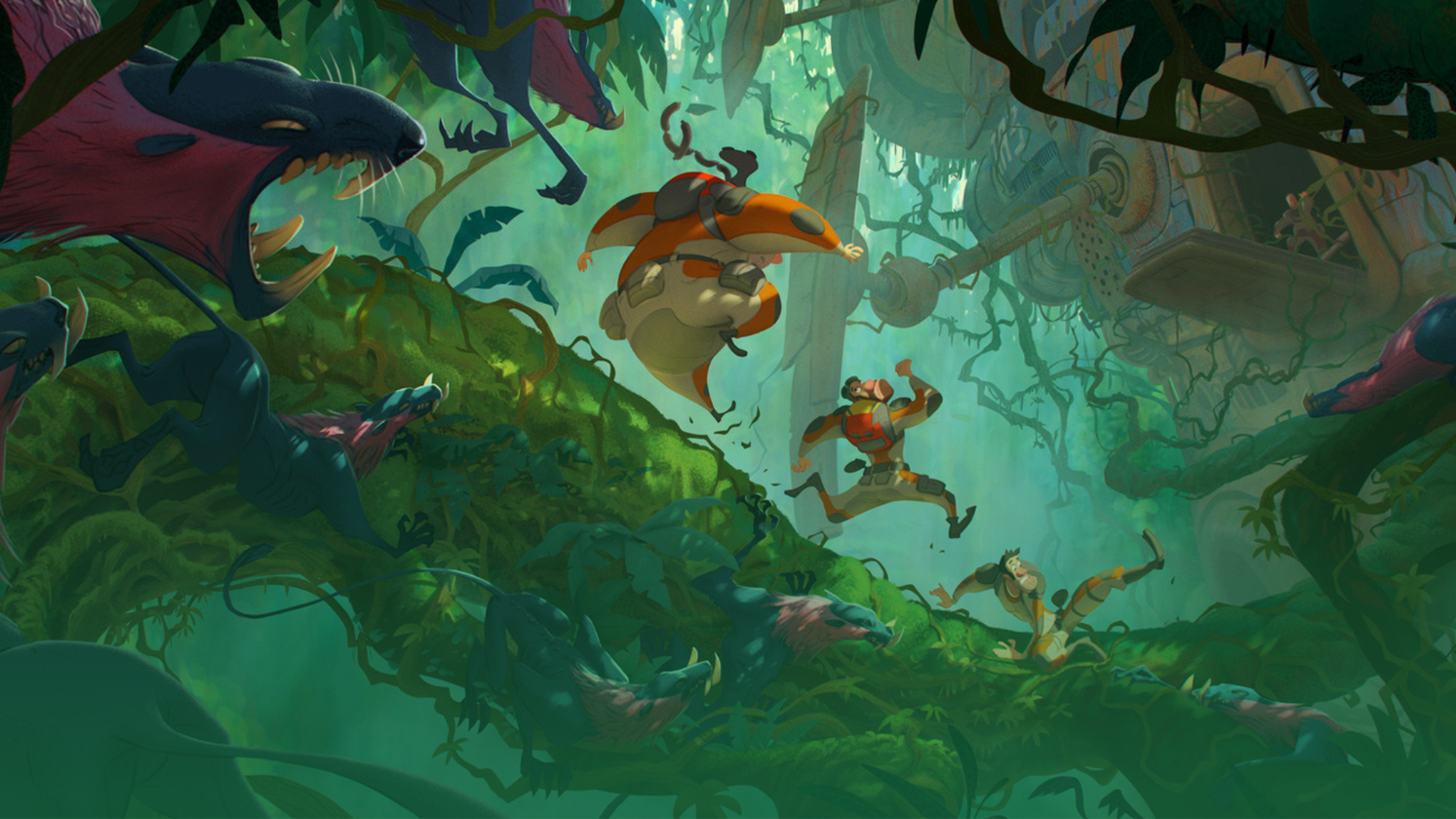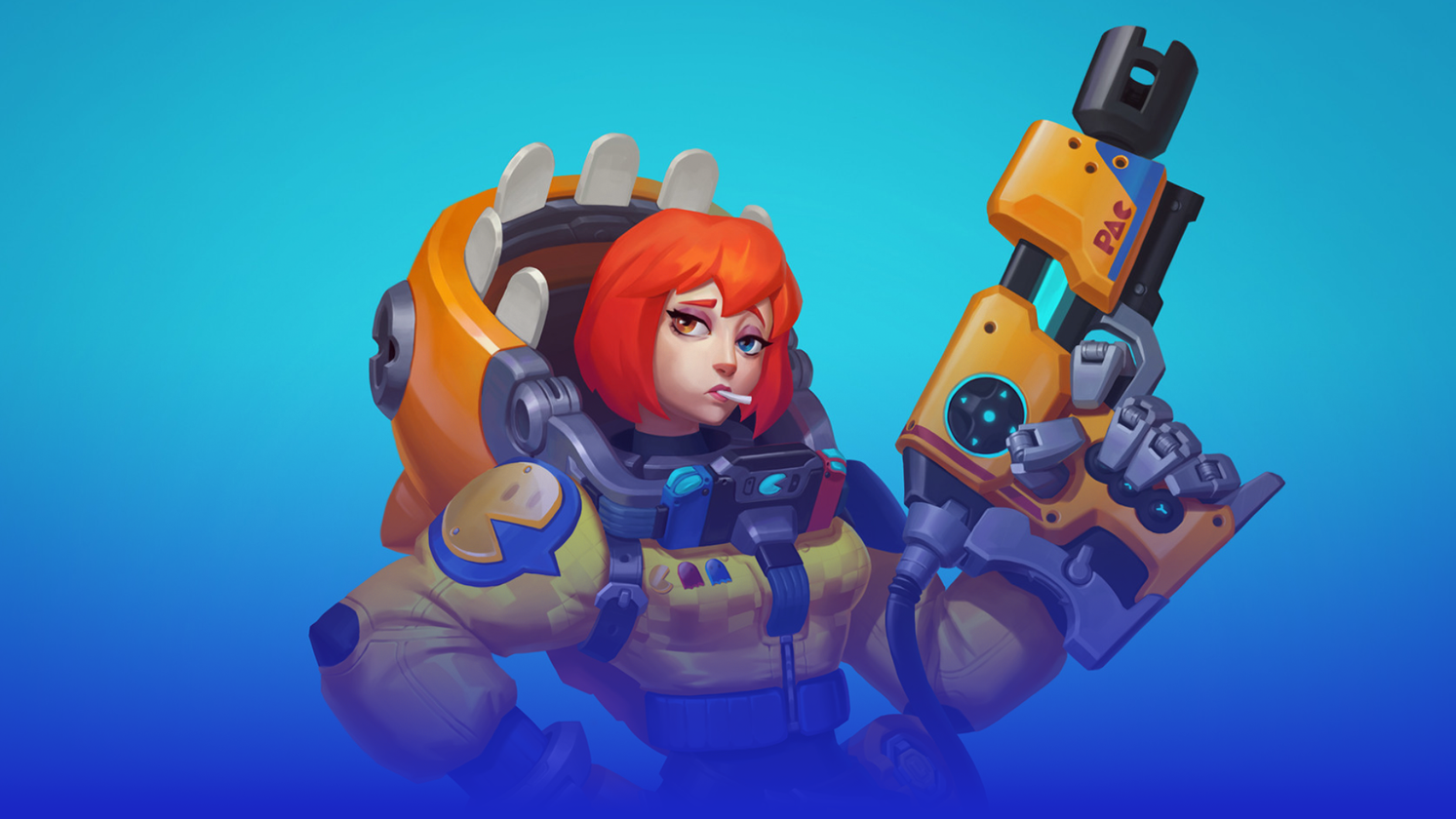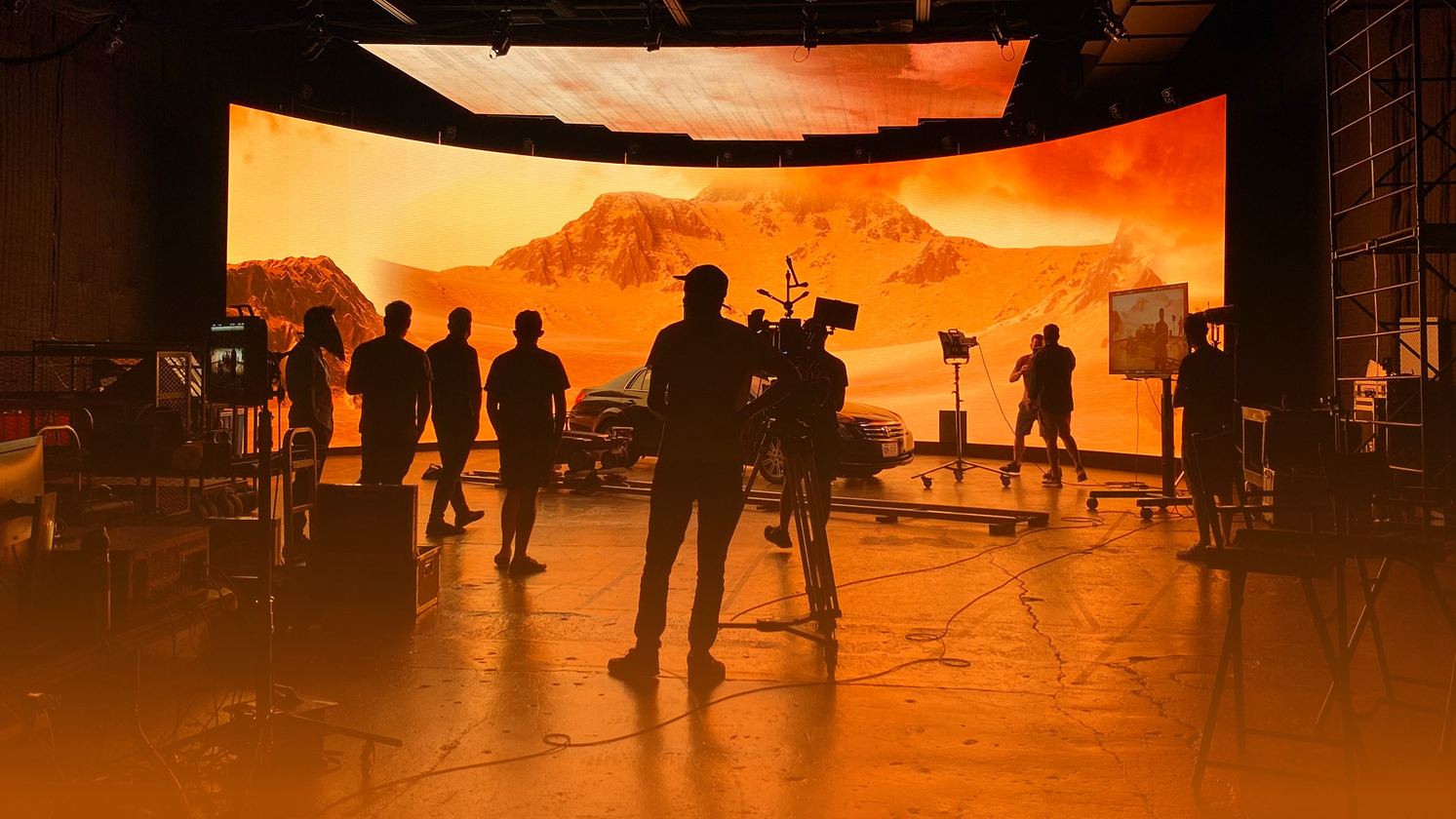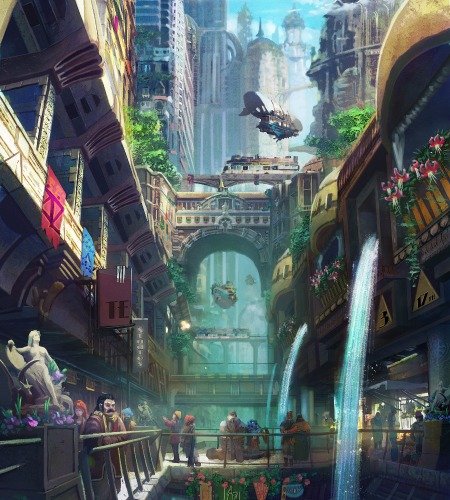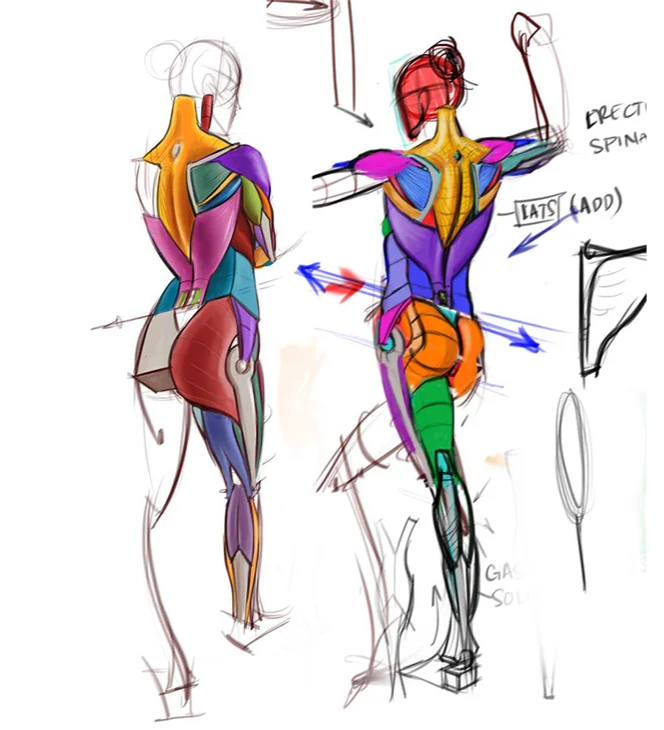Freelance vs Full Time: Which Path is For You?
Entering the Art Entertainment industry can be a daunting step for new professionals. You've taken the courses and/or tutorials, you've developed your own style, and you have a solid portfolio. But what's next?
Your next steps depend on whether you want to freelance or work for a studio/company. Both have unique opportunities, environments, benefits, and drawbacks. And while many artists don't know which work style they prefer until they try both, we thought we'd give you a head start by providing a sneak peek into these two professional pathways. Plus, some pros and cons.

1. Freelance
Freelance artists are not employees of a group or studio. As a freelancer, you'd typically work with several clients for short-term contracts. There are instances where you work enough hours to sustain just one client for long-term contracts. Freelancing can look different depending on your personal goals and realities. So let's dive into some pros and cons:
Pros
- Contract work is incredibly accessible. Let's say you're just getting started, or you have personal responsibilities that prevent you from taking a full-time position. You can earn money by taking commissions or working only a couple of hours a week.
- As a freelancer, you have a lot of flexibility in clients/projects. You get to choose what interests you, which means you can grow and transition into your skills and passions more easily.

- A huge perk is that you get to create your own schedule. As long as you make enough time to hit deadlines and make the amount of money you need, you have more flexibility to do chores, spend time with family, work out, relax, and do other mentally healthy activities!
- As a contractor, you get full control of business decisions. For entrepreneurs and organizers, this is a great bonus. You answer to no one (besides clients).
Cons
- Freelancing, as many artists already know, is inherently inconsistent. While you might have lots of work one week, you might have zero projects the next. You have to work hard to maintain the flow of work, and even then there's no guarantee.
- In freelancing, you don't get the benefits of working for an employer. And no, I don't mean a cool office with a stocked fridge. You don't have access to health benefits, so it's important to make a plan before you turn 26 and get kicked off your parents' insurance.
- Contract work does not provide a lot of opportunities for learning. Your client hired you to complete a project, not teach you how to do it. Plus, there's no friendly mentor-type in the cubicle next to you.
- If you don't feel comfortable making business choices, organizing your schedule, communicating with clients, or doing other managerial tasks - freelancing will be a steep learning curve. You'll have total responsibility for your art, business, and self.

2. Full-Time
Typically, artists are more familiar with full-time studio work than the nuances of freelancing. Instead of working for yourself, you'd start off at an entry-level position at a studio or agency. This is a more streamlined process, but we'll discuss more in the pros and cons!
Pros
- Full-time work provides stability, which is a huge plus for most people. You can expect a consistent paycheck and benefits for as long as you work there.
- Working for studios is a great learning experience because you're surrounded by peers and mentors. In addition to being able to ask questions when you're stuck, you'll also observe and borrow from the ideas and techniques around you.

- Community can be a powerful asset for artists of all ages and skill levels. Collaboration is a great way to create ideas, catch mistakes, and problem-solve. By working at a studio, you have a team behind you at all times.
- In a studio, you can stay craft-focused. Instead of creating new business or talking with clients, you can put all your attention into your art.
Cons
- In a full-time position, you lack total creative freedom. You'll always have to put the studio's style and vision before your own.
- In a studio, you have no say in business matters. A bigger company may acquire your studio, causing layoffs. Or the CEO may take on a client you hate. There will always be things that are out of your control.
- You need to play nice with others, because your work environment is set. Company culture, office space, and coworkers are all out of your control. Work environment alone can drive you out of a studio, so this is no small con!
- As a full-time employee, you are less flexible to accept new opportunities. Most of your time is already committed to your studio, so it takes a lot more time to maneuver around new professional goals and interests.

3. Changing Sides
Thankfully, this is not a Dark Side/Light Side issue. As long as you remember the benefits of both freelance and full-time, you can combine the two paths, or switch between them, in a way that helps you reach your goals.

Maybe you took a job at a studio, and now that you're a master at your craft, you're looking for more freedom. Or, like Experience Designer Luc Steadman, you have so much success as a freelancer that you can create your own studio!
There is no one pathway to success, and your own professional journey will likely take more than one unexpecting twist. But as long as you know your craft, plus the nuances of freelance and full-time work, you'll do just fine.
Need help preparing for your professional future? Check out CGMA's course Getting Started in the Game Industry: Interviews, Portfolios, and More.
[printfriendly]LEARN MORE
CGMA provides comprehensive instruction for Art, Games, and VFX industries in a variety of courses for a range of students, from 2D and 3D artists looking to supplement their college studies to industry professionals looking to stay up to date on emerging trends and techniques in the field.
RELATED LINKS
Check out Storyboard Artist Lanny Markasky's experience in the freelance grind.
See what TD Sean McEwan thinks about navigating changes in the industry.
Watch Luc Steadman explain his journey from freelancer to studio CEO.
Need help preparing for your professional future? Check out CGMA's course Getting Started in the Game Industry: Interviews, Portfolios, and More.
Sources
https://www.flexjobs.com/blog/post/pros-and-cons-of-freelance-jobs/


